BGI-Research and Zhejiang Lab Unveil Groundbreaking Human-Centric Genomic Foundation Model, Accelerating Personalized Medicine and Global Collaboration
From October 23–26, the 20th Annual Meeting of the International Conference on Genomics (ICG-20) returns to its birthplace in Hangzhou. Centered on the theme "The Future of Omics and AI," the event brings together over 100 distinguished guests from 19 countries and regions, including 20 academicians, former member of the Nobel Committee for Physiology or Medicine, World Food Prize laureate, and initiators of major global scientific projects. In Hangzhou, a city where historical heritage meets modern innovation, these leading experts will engage in forward-looking academic dialogues on key topics at the forefront of life sciences. Discussions will span global collaboration in omics and AI, cancer genomics, biodiversity and multi-omics of deep-sea organisms, metagenomics and epidemiology, and public health and precision medicine.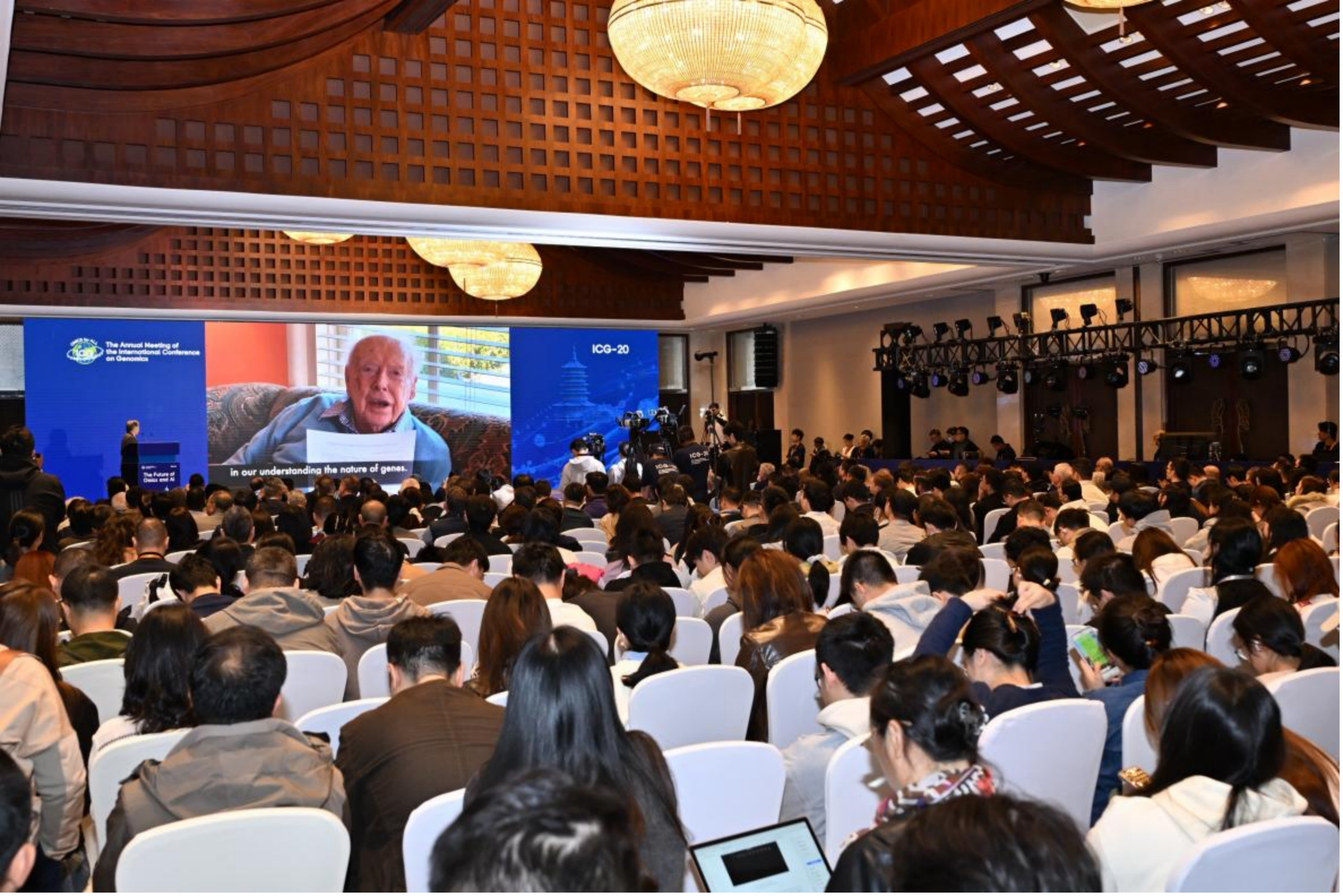
Opening Ceremony of ICG-20 in Hangzhou. (Credit: ICG-20 Organizing Committee.)
At the opening session, BGI-Research and Zhejiang Lab jointly unveiled Genos, an open-source, human-centric genomic foundation model with over 10 billion parameters. Representing global ancestries and achieving single-nucleotide precision across ultra-long contexts, Genos transcends traditional genome sequencing by deeply exploring the fundamental mechanisms of life. Comprehensive evaluation results show that Genos outperforms the current state-of-the-art (SOTA) across most core tasks, demonstrating its exceptional and comprehensive capabilities. This breakthrough paves the way for individuals to easily interpret their own genomic information, fueling advancements in clinical disease diagnosis, personalized medicine, and transformative scientific discoveries.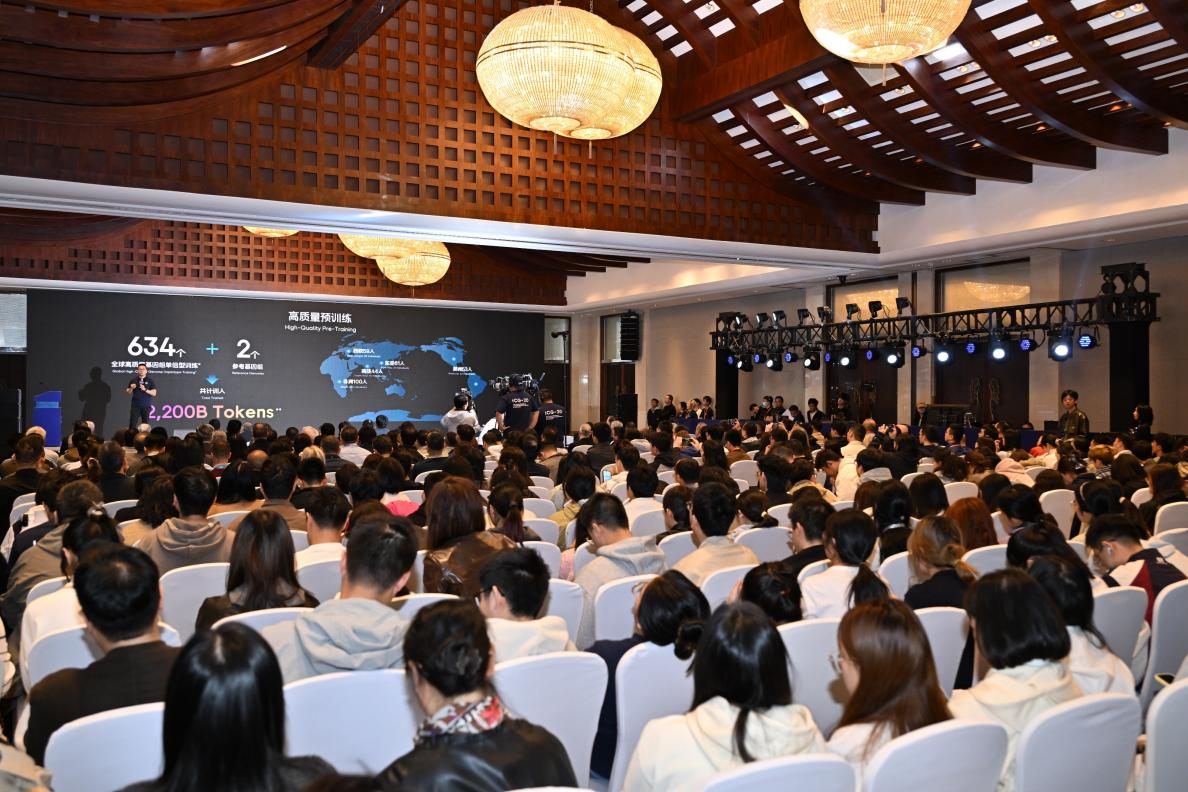
The unveiling of Genos at the ICG-20 Hangzhou opening ceremony. (Credit: ICG-20 Organizing Committee.)
Professor Huanming Yang, Academician of the Chinese Academy of Sciences, Co-founder and Member of the Board of Directors of BGI Group, delivered a speech as the Chairman of the ICG-20 organizing committee. He expressed his sincere gratitude to the guests who traveled from various countries and emphasized that it is the collaborative efforts of global researchers that have enabled ICG to grow into a highly influential international conference in the field, while also driving progress in the omics discipline.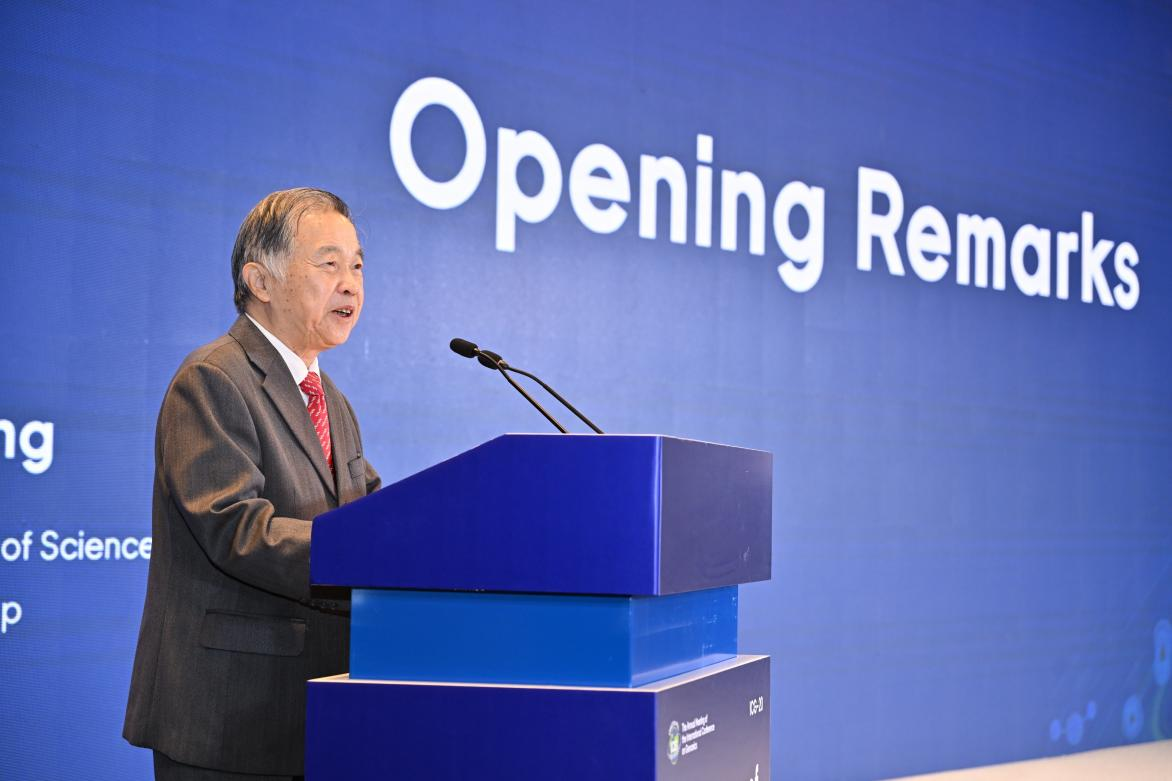
Professor Huanming Yang delivers the opening remarks at ICG-20. (Credit: ICG-20 Organizing Committee.)
Professor George Church, a member of the U.S. National Academy of Sciences, National Academy of Engineering, and American Academy of Arts and Sciences, as well as a professor at Harvard Medical School, delivered an online address. As one of the initiators of the Human Genome Project, he noted that while the initial cost of approximately $3 billion for the project may have seemed high, the subsequent returns, particularly in reducing the burden of diseases, have far exceeded the investment. Additionally, he shared the latest advancements in the integration of omics and AI research and expressed his anticipation for more fruitful collaborations in the future.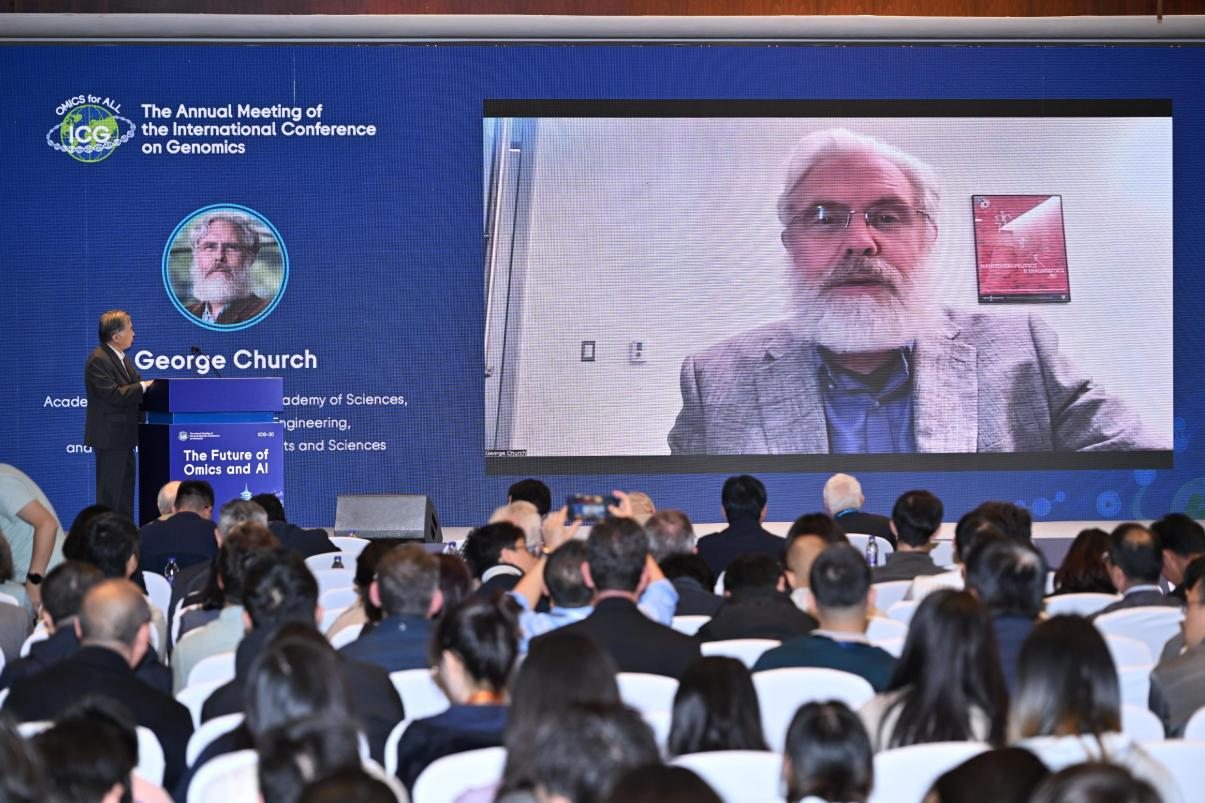
Professor George Church joins virtually to deliver a special address to attendees at the ICG-20 opening session. (Credit: ICG-20 Organizing Committee.)
The conference also showcased cutting-edge insights into the convergence of AI and disease prevention. Dr. Jian Wang, Academician of the Chinese Academy of Engineering and Director of Zhejiang Lab, delivered a plenary address titled "Computing and AI: Paradigm Shift of Scientific Discovery." In his speech, he outlined the profound impact of open-source innovation and explained how AI, when integrated with science, is emerging as a tool for scientific discovery as fundamental as mathematics. Dr. Hefeng Huang, Academician of the Chinese Academy of Sciences and Dean of the International School of Medicine, Zhejiang University, presented her latest research on leveraging omics technologies for the early prevention of ovarian and breast cancer syndromes, offering new pathways for safeguarding women's health.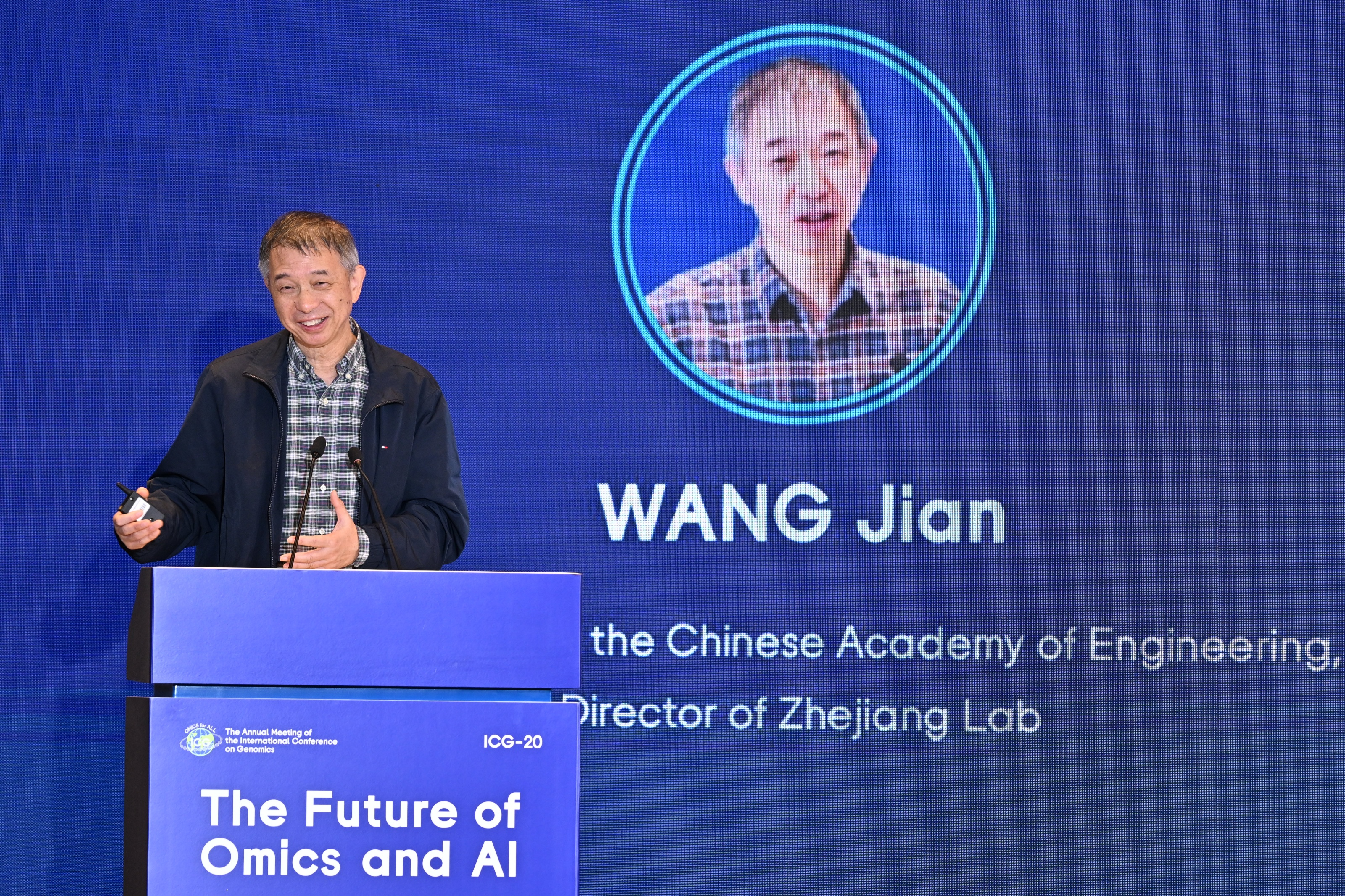
Dr. Jian Wang speaks on the conference, presenting “Computing and AI: Paradigm Shift of Scientific Discovery.” (Credit: ICG-20 Organizing Committee.)
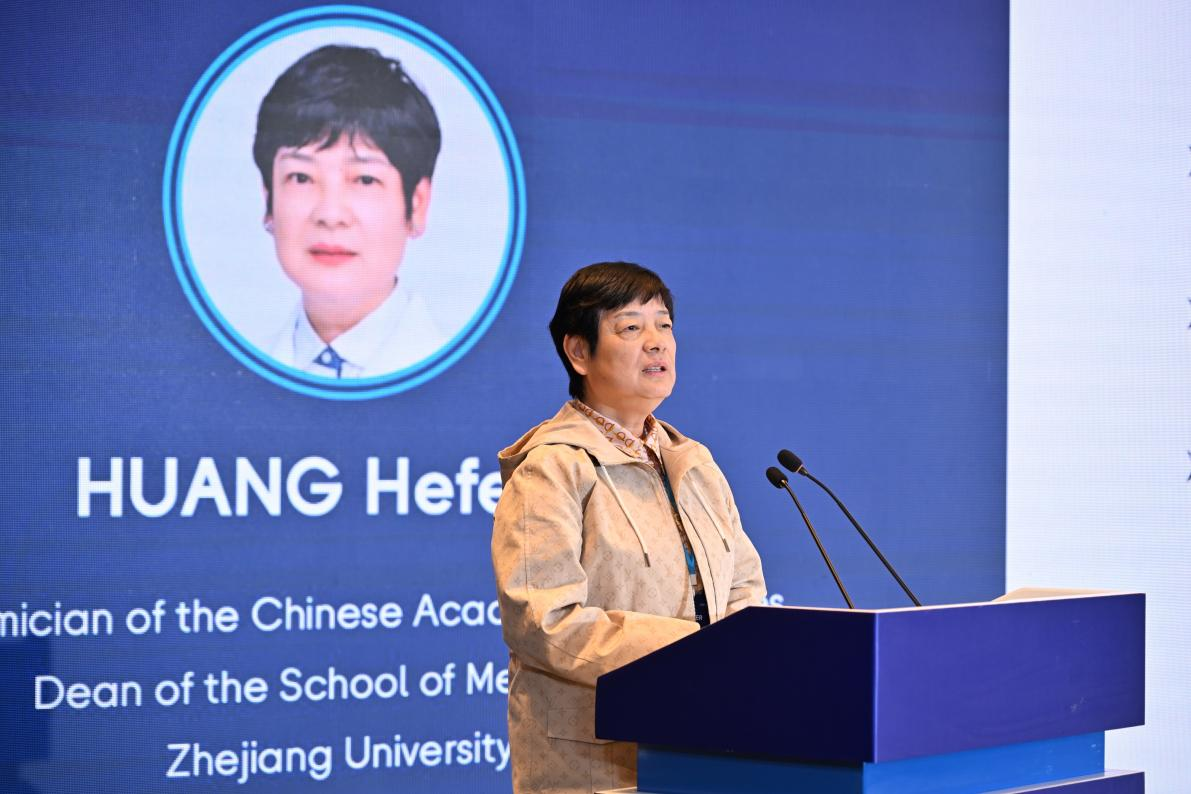
Dr. Hefeng Huang discusses the application of omics technology for the early prevention of ovarian and breast cancer syndromes. (Credit: ICG-20 Organizing Committee.)
During the conference, speakers shared their insights on "The Future of Human Genomics" and "Omics and Health" from diverse perspectives. Dr. Xifeng Wu, Dean of the School of Public Health at Zhejiang University, shared the latest achievements of the Healthy Zhejiang One Million People Cohort Project. Dr. James Crabbe, Fellow of Wolfson College at the University of Oxford, emphasized the importance of borderless international collaboration, showcasing how omics technologies and AI are transforming future medicine, ecology, and agriculture. Dr. Xiangdong Wang, Member of the Academy of Europe, highlighted how Stereo-Cell technology is propelling next-generation precision medicine. Dr. Gane Ka-Shu Wong, Professor of Biological Sciences and Medicine at the University of Alberta, proposed utilizing population-scale human phenotypes to develop novel drug targets and gain insights into the global burden of disease.
In the next three days, ICG-20 will address a broader range of critical topics, including global collaboration in omics and AI, the interplay between large-scale scientific endeavors and industry, the growing influence of biobanks on precision medicine, the transformative potential of AI in healthcare, and the integration of artificial intelligence across the life sciences.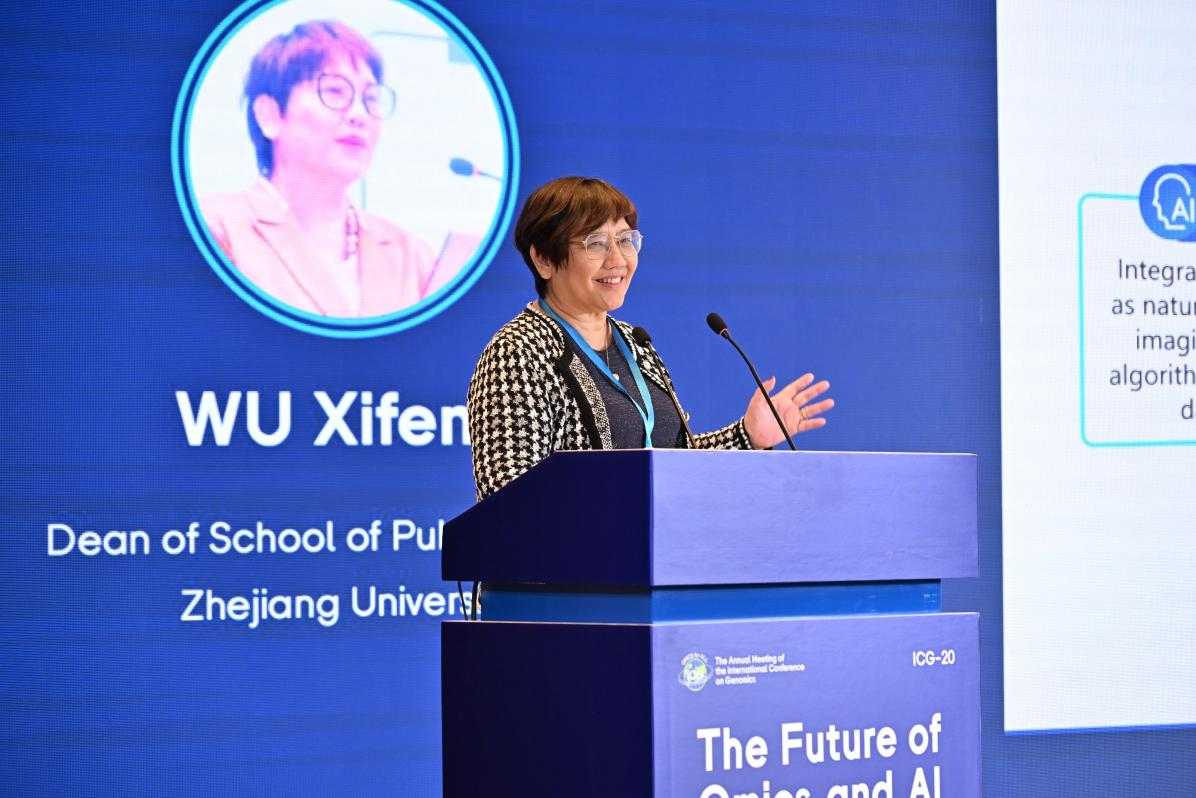
Dr. Xifeng Wu shares the latest achievements of the Healthy Zhejiang One Million People Cohort Project. (Credit: ICG-20 Organizing Committee.)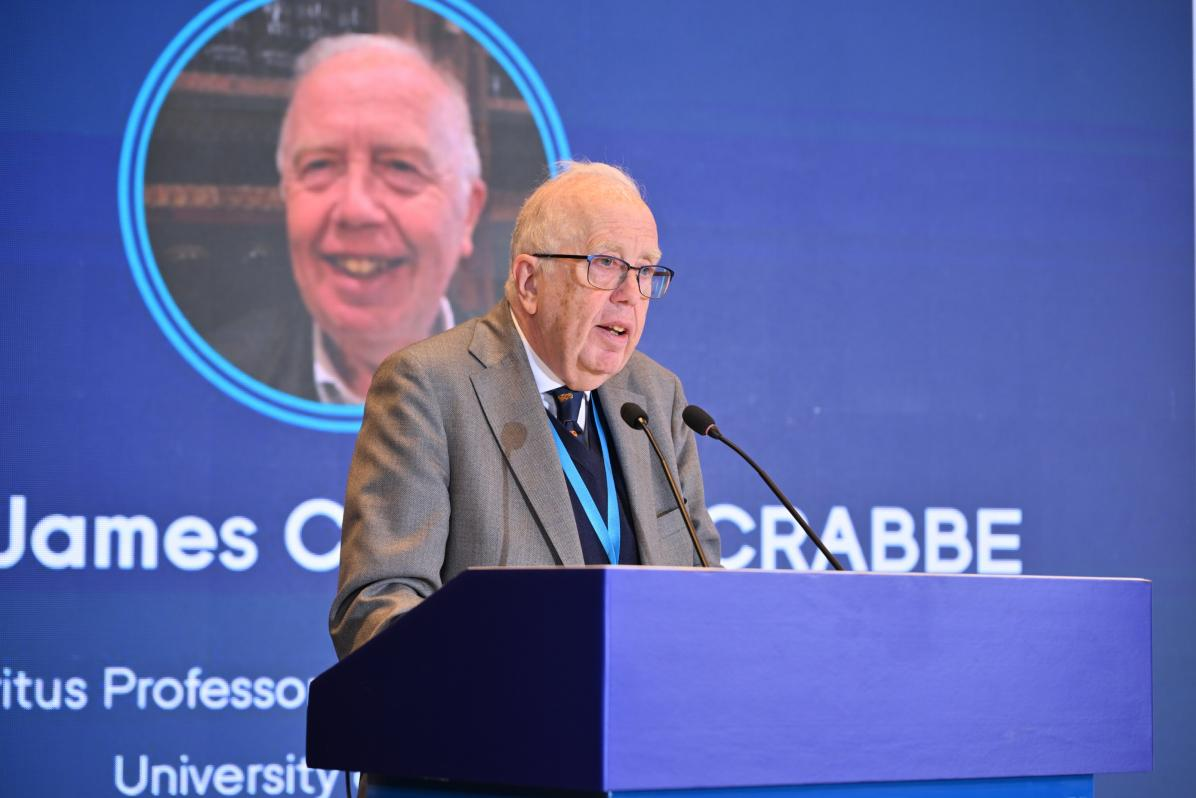
Dr. James Crabbe shares his perspectives on Omics and AI. (Credit: ICG-20 Organizing Committee.)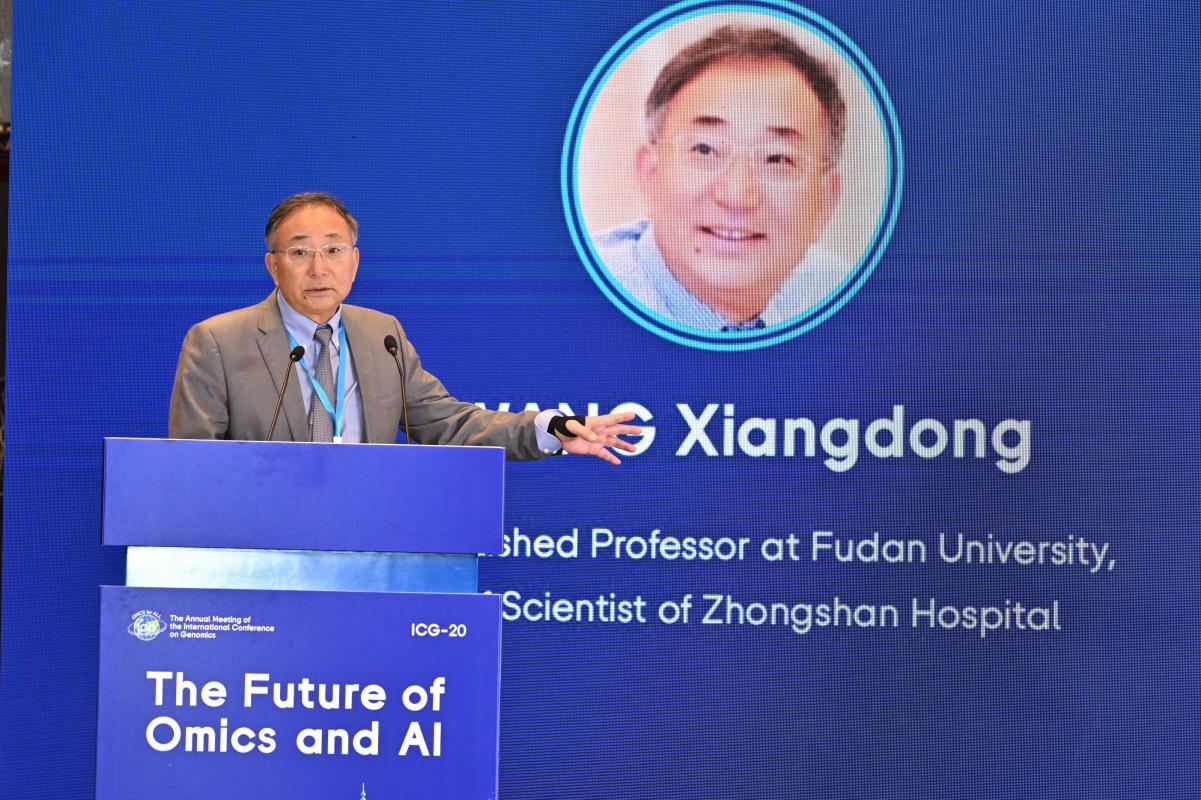
Dr. Xiangdong Wang, Member of the Academy of Europe, delivered a keynote speech. (Credit: ICG-20 Organizing Committee.)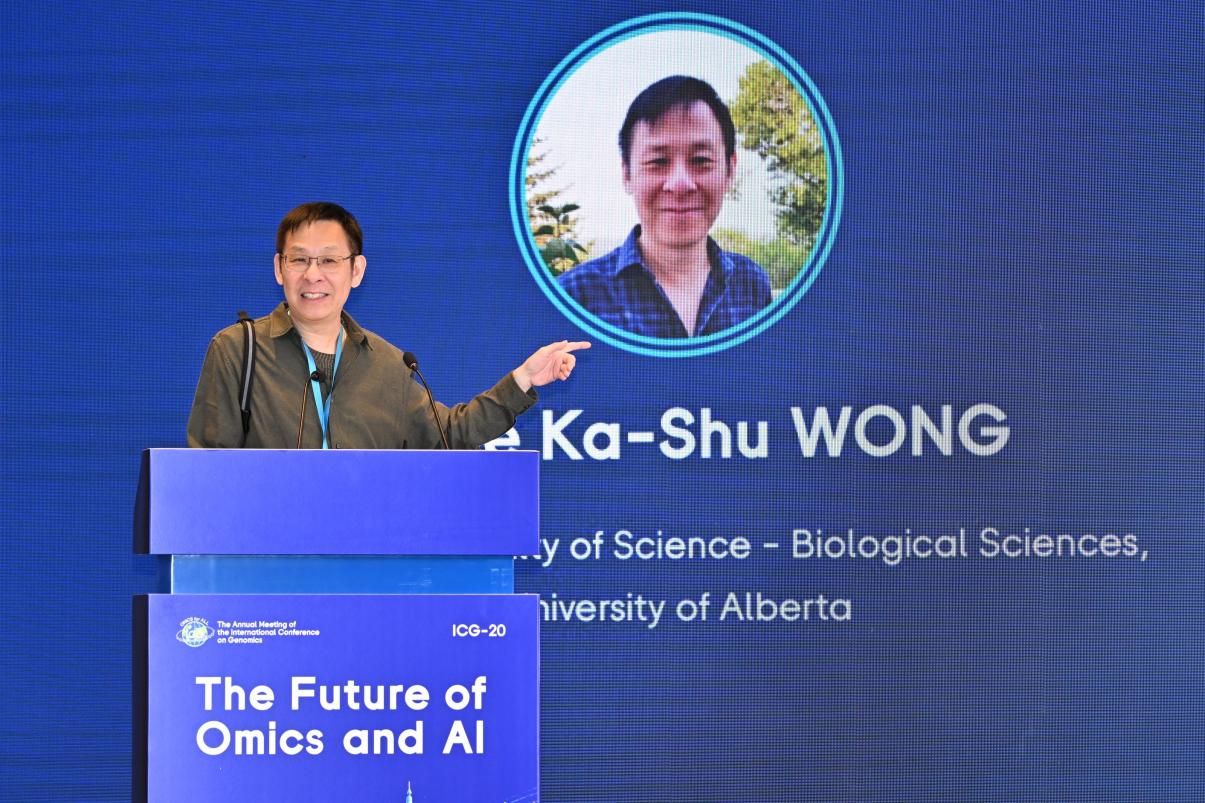
Dr. Gane Ka-Shu Wong, Professor of Biological Sciences and Medicine at the University of Alberta, delivered a keynote speech. (Credit: ICG-20 Organizing Committee.)
Adding to its appeal, the conference features a dedicated "Science Popularization Carnival" aimed at younger audiences. This special event includes an impressive lineup of science communicators, such as Dr. Ye Yin, CEO of BGI Group, alongside esteemed figures like the former Director of the China Science and Technology Museum, renowned plant experts, and accomplished science documentary filmmakers. Through engaging narratives, these experts will translate complex omics and AI breakthroughs into relatable stories, inspiring the next generation to explore the wonders of science.
In 2006, the inaugural International Conference on Genomics (ICG) was held on the shores of Hangzhou's iconic West Lake, bringing together two Nobel laureates, key figures from the Human Genome Project, and leading genomics researchers from around the globe. Over the past two decades, ICG has embodied the collaborative spirit of the Human Genome Project—"Owned by All, Done by All, and Shared by All"—fostering the rapid advancement of global omics research and the biotechnology industry. Today, ICG serves as a vital nexus for connecting international scientific efforts and promoting progress in the life sciences.
From the first glimpse of the human blueprint at the start of the century to today’s explosive innovations at the intersection of omics and artificial intelligence, life sciences continue to reshape our understanding of existence. As a leading force in the global omics landscape, ICG remains committed to the principles of open science—collaborative, inclusive, and accessible to all. It aims to strengthen international ties among researchers, educators, and industry leaders in genomics, advancing human health and building a more sustainable future.



